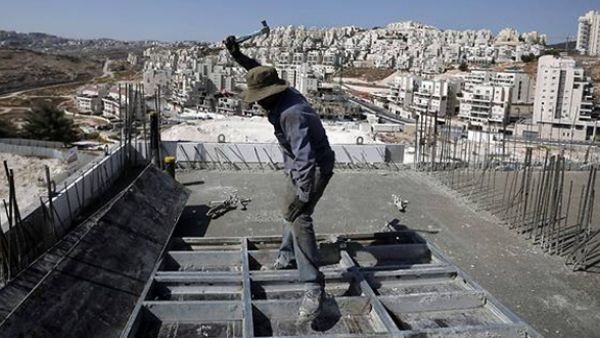Palestinians, the UN, and Israeli activists lambasted the government of Prime Minister Benjamin Netanyahu Friday, a day after it gave the go-ahead for the first new West Bank settlement in 25 years.
"This new escalation reveals the persistence of the occupation government to continue opposing and obstructing all efforts exerted to resume the peace process," Palestinian government spokesman Yousef Mahmoud said in a statement.
Talks between the Israelis and the Palestinians, who have been in conflict for decades, have been effectively shelved in recent years.
The expansion of existing settlements on the West Bank - territory which Israel occupied during a conflict in 1967 - has been a major point of contention between the two sides. Some 600,000 Israeli settlers live on the West Bank and in East Jerusalem.
Hanan Ashrawi, a member of the executive committee of the Palestine Liberation Organization, accused Israeli Prime Minister Benjamin Netanyahu and his government of caring more about "appeasing their illegal settler population than abiding by the requirements for stability and a just peace."
UN Secretary General Antonio Guterres expressed his "disappointment and alarm" at the decision to build a new settlement in occupied Palestinian territory.
Guterres "condemns all unilateral actions that, like the present one, threaten peace and undermine the two-state solution. Settlement activities are illegal under international law and present an obstacle to peace," the UN statement said.
Israel's security cabinet voted unanimously on Thursday in favour of the construction of the new settlement north of the Palestinian city of Ramallah.
It is intended to house residents of the West Bank outpost of Amona, which was demolished last month after Israel's high court ruled that it was built on privately owned Palestinian land.
"Netanyahu is held captive by the settlers, and chooses his political survival over the interest of the state of Israel," Israeli rights group Peace Now said.
"By giving in to settler pressure, Netanyahu is leading Israelis and Palestinians to a reality of one state and apartheid."
The approval for the new settlement came despite US President Donald Trump's request to Netanyahu in mid-February to "hold back" on settlement construction.
Trump has signalled his intention to revive talks, but, in a major change for US Middle East policy, he simultaneously announced that he would be open to alternatives to the two-state solution.
By Stefanie Jaerkel and Maher Abukhater








